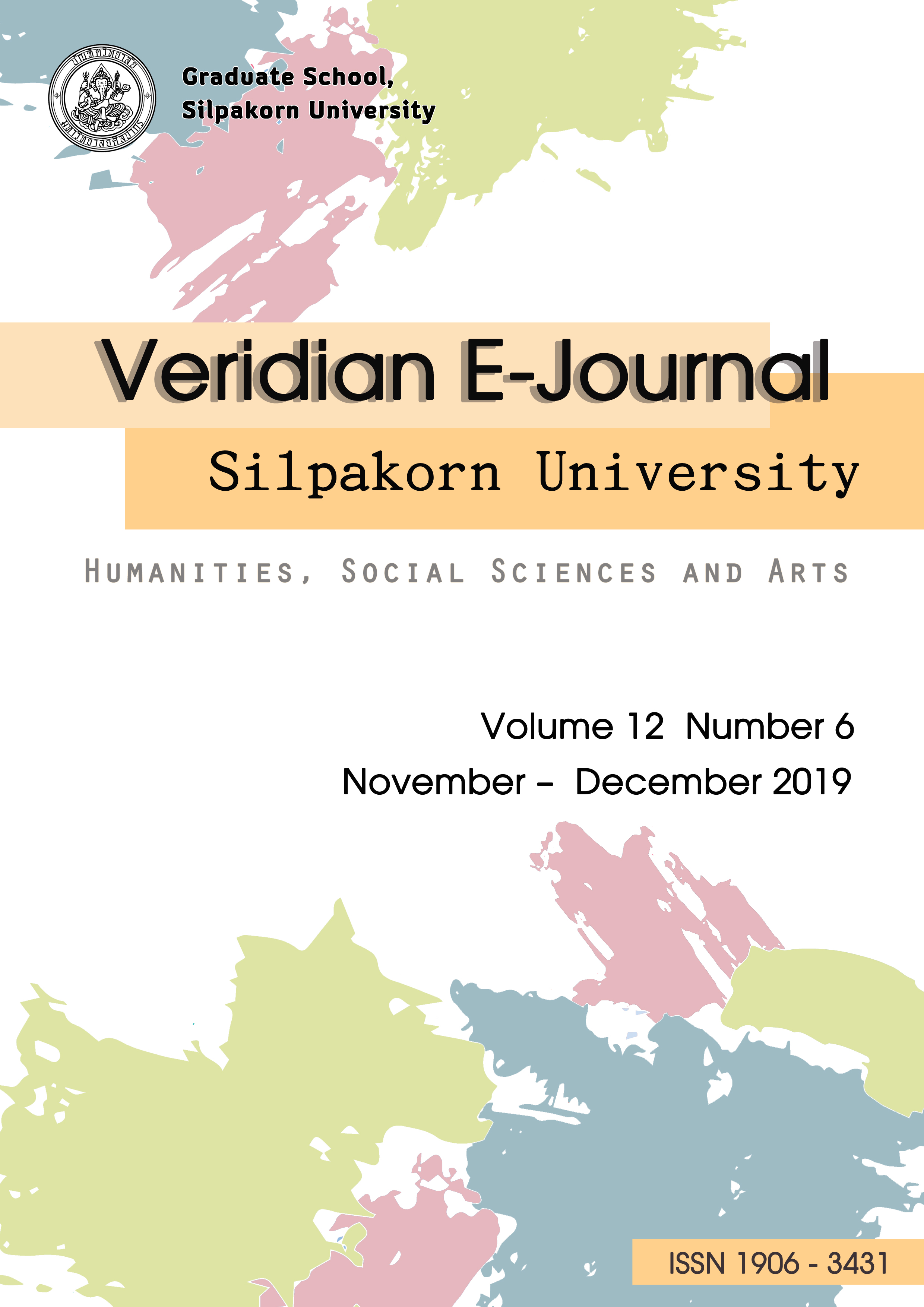ตัวแบบเส้นทาง PLS ที่ส่งผลต่อความตั้งใจที่จะเป็นผู้ประกอบการบนแพลตฟอร์มดิจิทัลของนักศึกษาระดับปริญญาตรีด้านบริหารธุรกิจ (The PLS Path Model Affecting the Entrepreneurial Intention on Digital Platform of BBA Students)
Main Article Content
Abstract
การศึกษาเรื่องตัวแบบเส้นทาง PLS ที่ส่งผลต่อความตั้งใจที่จะเป็นผู้ประกอบการบนแพลตฟอร์มดิจิทัลของนักศึกษาระดับปริญญาตรีด้านบริหารธุรกิจ มีวัตถุประสงค์เพื่อศึกษาปัจจัยที่มีความสัมพันธ์เชิงสาเหตุต่อความตั้งใจที่จะเป็นผู้ประกอบการบนแพลตฟอร์มดิจิทัลของนักศึกษาระดับปริญญาตรีด้านบริหารธุรกิจ โดยกลุ่มตัวอย่าง คือ นักศึกษาระดับปริญญาตรีในหลักสูตรการบริหารธุรกิจในพื้นที่จังหวัดเพชรบุรีและประจวบคีรีขันธ์ จำนวน 400 คน เครื่องมือที่ใช้ คือ แบบสอบถาม วิเคราะห์ตัวแบบสมการโครงสร้างด้วยเทคนิควิธี Partial Least Square (PLS) และการพรรณาข้อมูล
ผลการวิจัยพบว่า บุคลิกภาพแบบยึดมั่นในหลักการ บุคลิกภาพแบบประนีประนอม บุคลิกภาพแบบเปิดใจสู่การเรียนรู้ บุคลิกภาพแบบมั่นคงทางอารมณ์ แรงจูงใจภายในที่จะเป็นผู้ประกอบการมืออาชีพ แรงจูงใจภายนอกที่จะเป็นผู้ประกอบการมืออาชีพ ต่างมีความสัมพันธ์เชิงสาเหตุต่อความตั้งใจที่จะเป็นผู้ประกอบการบนแพลตฟอร์มดิจิทัลของนักศึกษาระดับปริญญาตรีด้านบริหารธุรกิจ โมเดลสมการโครงสร้างสามารถอธิบายผลของความตั้งใจที่จะเป็นผู้ประกอบการบนแพลตฟอร์มดิจิทัลของนักศึกษาระดับปริญญาตรีด้านบริหารธุรกิจ ได้ ร้อยละ 55.60 (R2 = 55.60, R2adj = 55.20) จากผลการวิจัยเป็นประโยชน์ต่อสถาบันการศึกษา ศูนย์บ่มเพาะธุรกิจ และผู้ที่มีส่วนเกี่ยวข้อง ในการเพิ่มระดับความตั้งใจที่จะเป็นผู้ประกอบการบนแพลตฟอร์มดิจิทัลของนักศึกษาระดับปริญญาตรีด้านบริหารธุรกิจ โดยผ่านแรงจูงใจภายในและภายนอกที่จะเป็นผู้ประกอบการมืออาชีพที่เกิดจากบุคลิกภาพแบบยึดมั่นในหลักการ บุคลิกภาพแบบประนีประนอม บุคลิกภาพแบบเปิดใจสู่การเรียนรู้ และบุคลิกภาพแบบมั่นคงทางอารมณ์
To study the PLS model affecting the entrepreneurial intention on digital platform of BBA students. The objectives of this study are factors that has causal relationship with entrepreneurial intention on digital platform of BBA students. The samples are 400 undergraduate students in business management program in Phetchaburi and Prachuap Khiri Khan provice. The research instrument was a questionnaire. In the process of data analysis, Partial Least Square (PLS) technique was used to investigate the structural equation modeling and descriptive statistics were used to analyze.
The research found that the conscientiousness, agreeableness, openness to experience, emotional stability, intrinsic professional entrepreneurial motivation, extrinsic professional entrepreneurial motivation had causal relation with entrepreneurial intention on digital platform of BBA students. The structural equation model can explain the entrepreneurial intention on digital platform of BBA students at 55.60 percent (R2 = 0.556, R2adj = 0.552). The results of this research are beneficial to educational institutions, business incubators and stakeholders to increase the entrepreneurial intention on digital platform of BBA students through the intrinsic and extrinsic professional entrepreneurial motivation by the conscientiousness, agreeableness, openness to experience, and emotional stability.
